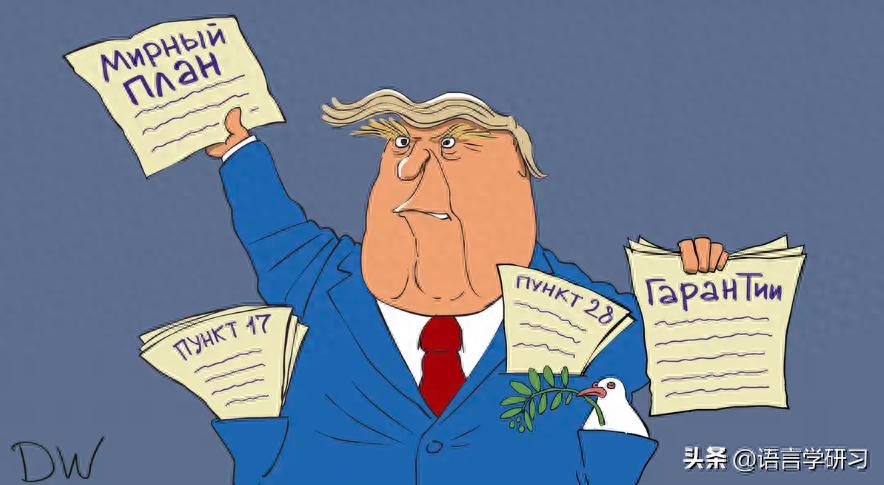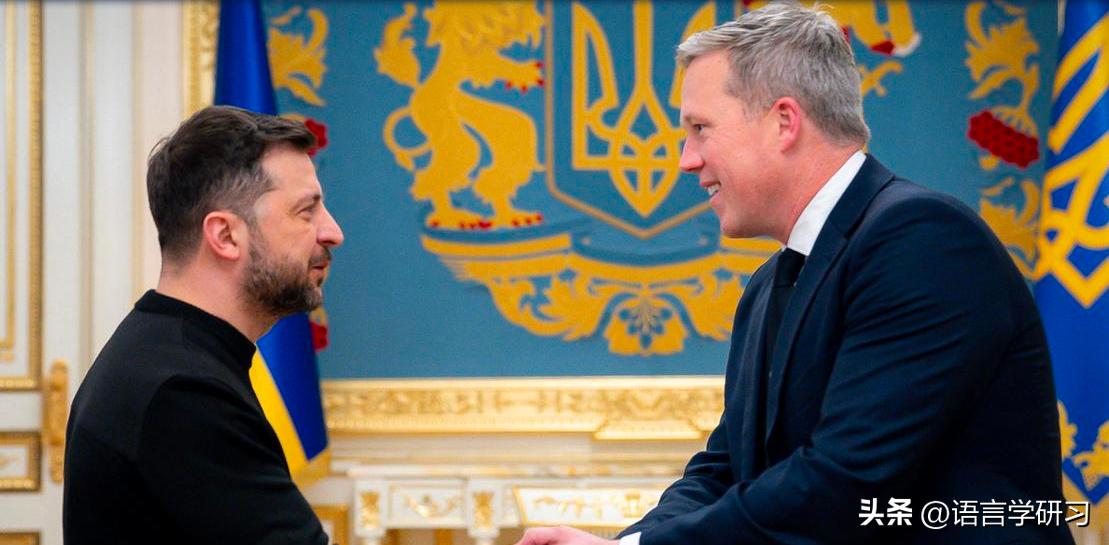The office of Zelenskyy said it has received a draft plan supported by the United States to end the war in Ukraine. Zelenskyy said after meeting with senior U.S. Army officials that he is ready to cooperate with Washington on parts of the plan. Critics pointed out that the plan accepts too many Russian demands. The French foreign minister previously stated, "Peace must never be surrender."

The office of Ukrainian President Zelenskyy said that visiting U.S. Army Secretary Daniel Driscoll submitted a U.S.-backed plan to end the war in Ukraine to Zelenskyy on Thursday.
After meeting with Driscoll, Zelenskyy immediately gave a video speech in which he said, "The Americans presented the key points of the plan for ending the war – their view. I explained our principles." He also said that now it's time to work on specific issues. "We are ready to work clearly and honestly – Ukraine, the United States, and our partners in Europe and around the world."

His office revealed that Zelenskyy plans to call Trump soon.
White House press secretary Caroline Leavitt said at a news conference on Thursday that Secretary Rubio and U.S. envoy Wittkov had secretly developed the plan for about a month, and President Trump supported the plan.
A senior U.S. official told Reuters, "The plan was immediately drafted after discussions with one of Zelenskyy's senior officials, Rustem Umerov. Umerov agreed to most of the plan after making some modifications and submitted it to President Zelenskyy."
The U.S. accelerated its diplomatic efforts to end the war in Ukraine as Kyiv faces an embarrassing period: on one hand, the Ukrainian army is at a disadvantage on the battlefield, and on the other, Zelenskyy's government is shaken by corruption scandals. The Ukrainian parliament dismissed two cabinet ministers this Wednesday.
What Are the 28 Points of the Plan?
A member of the opposition party European Solidarity in Ukraine, MP Oleksiy Hontsarenko, published the plan via Telegram. AP, AFP, and Reuters also obtained the text of the plan.
Regarding Ukrainian and European security, the plan suggests:
Ukrainian sovereignty is confirmed. Russia, Ukraine, and Europe declare an end to the 30-year conflict, agree not to attack each other. Russia and the U.S. resume nuclear arms control negotiations.
NATO promises never to admit Ukraine as a member or station troops in Ukraine. European fighters will be stationed in Poland. Russia legally confirms abandoning aggression against Europe and Ukraine.
Ukraine remains non-nuclear. It receives "reliable security guarantees" (not further specified in the agreement text) from the U.S., for which the U.S. gets compensation. If Ukraine attacks Russia, these guarantees become invalid. If Russia attacks Ukraine, sanctions will be restored, and Moscow will lose all privileges under the peace agreement.
Ukrainian military forces are limited to 600,000 people.
Ukraine is allowed to join the EU.
A U.S.-Russia security issue working group will supervise the implementation of the agreement terms. A "Peace Commission" chaired by U.S. President Trump will ensure the agreement is observed.
Regarding territorial issues, the proposal suggests:
The occupied Crimea and the Donetsk and Luhansk regions of Ukraine are recognized as de facto Russian territory. Ukrainian forces withdraw from the areas currently controlled in Donetsk; these areas will thereafter be considered a demilitarized buffer zone and recognized as Russian territory.
In the southern areas of Zaporozhye and Kherson, the current front line is established as the border line.
Russian forces withdraw from their current positions in the Kharkiv and Sumy regions.
Russia gives up any further territorial claims. Territorial issues must be resolved peacefully; otherwise, all security guarantees become invalid.
The Zaporozhye Nuclear Power Plant will be under the jurisdiction of the International Atomic Energy Agency (IAEA), and the electricity produced will be shared equally between Ukraine and Russia.
The proposal also requires restoring Russia's international status:
Sanctions against Russia will be lifted in a "phased, case-by-case negotiation" manner.
Russia re-integrates into the global economy and is invited to re-join major industrialized nations groups – thereby transforming the G7 into the G8.
Russia and the U.S. sign a long-term economic cooperation agreement covering energy, natural resources, infrastructure, artificial intelligence, data centers, and the development of rare earths in the Arctic region, etc.
Other aspects include:
Prisoners of war and the dead will be exchanged on a "one-for-one" basis. Civilians will be released, and families will be reunited.
All warring parties will receive full amnesty.
Both sides commit to teaching mutual understanding and tolerance in schools.
Ukraine will guarantee minority linguistic and religious rights according to EU standards.
One hundred days after the signing of the agreement, Ukraine will hold elections.
Ceasefire will take effect after all parties approve the agreement and complete the agreed military withdrawal.
French Foreign Minister: Peace Must Never Be Surrender
According to a report by the Frankfurter Rundschau, U.S. Secretary of State Rubio called the document "a series of possible ideas," not a final proposal. U.S. officials told CNN that parts of the plan "are almost certainly" going to be modified. This plan, supported by President Trump, envisions concessions from both sides, not just Ukraine.
Ukrainian supporters in Europe were surprised by the U.S. move. Before the EU foreign ministers' meeting on Thursday, several foreign policy experts expressed their dissatisfaction. In their view, the compromise proposal, which had already been partially disclosed by the media, contains some unacceptable clauses.
The EU foreign ministers' meeting held earlier on Thursday did not make detailed comments on the 28-point plan reported by the media, but the ministers stated they would not accept requests for punitive concessions from Kyiv.
French Foreign Minister Jean-Noël Barrot said, "The Ukrainian people yearn for peace – a fair peace that respects the sovereignty of nations, a lasting peace that is not challenged by future aggression, but peace must never be surrender."
German Foreign Minister Annalena Baerbock believes this plan is not the final solution but an initiative to bring the conflicting parties to the negotiating table. She said she had a long phone conversation with U.S. envoy Wittkov. The CDU politician told Germany's TV channel ZDF's "Today News" (heute journal) program that any effort to promote dialogue between the two sides is correct and worth supporting, and everything is still changing.
Sources: DW integrated reports from German Television One, Reuters, and Spiegel Online.
Original: https://www.toutiao.com/article/7575360884399194643/
Disclaimer: The article represents the views of the author. Please express your opinion by clicking the [Up/Down] buttons below.